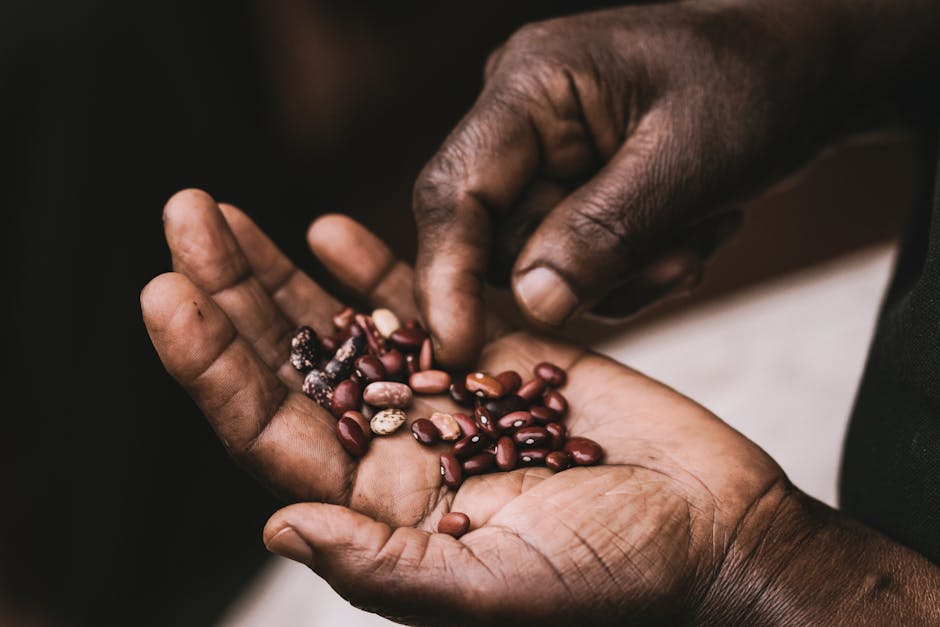Protein, a fundamental building block of life, plays a pivotal role in numerous bodily functions. From constructing and repairing tissues to supporting hormone production and immune response, protein’s importance cannot be overstated. A balanced protein intake is crucial for overall health and well-being, but sourcing it effectively from a variety of foods is key. This exploration delves into diverse protein sources, highlighting their nutritional value and addressing common concerns surrounding protein consumption.
Understanding Protein’s Role:
Before examining specific food sources, it’s important to grasp the significance of protein in the human body. Protein molecules are formed from amino acids, some of which the body can produce, while others must be obtained through the diet. These essential amino acids are vital for various bodily processes and must be supplied regularly. Furthermore, protein contributes to satiety, helping maintain a healthy weight by keeping you feeling full for longer periods. The quality of protein, determined by its amino acid profile, dictates how efficiently the body can utilize it.
Exceptional Animal Protein Sources:
Animal products generally provide a complete protein profile, meaning they contain all essential amino acids in adequate amounts.
* Lean Meats: A cornerstone of a nutritious diet, lean meats such as chicken breast, turkey, and fish (especially fatty fish like salmon and tuna) are excellent sources of high-quality protein. Choosing lean cuts minimizes saturated fat intake, contributing to better heart health. The protein in these meats aids muscle growth and repair, making them a popular choice among athletes and fitness enthusiasts.
* Eggs: Universally recognized as a nutritional powerhouse, eggs provide a complete protein profile and an array of essential vitamins and minerals. Their ease of preparation and versatility make them a staple in many cuisines, and their protein supports numerous bodily functions.
* Dairy Products: Dairy, including milk, yogurt, and cheese, is another valuable source of protein and calcium. The casein and whey proteins in dairy offer sustained release, maintaining a steady amino acid supply throughout the day. Different dairy products offer varying levels of fat, so selecting lower-fat options is generally beneficial.
Plant-Based Powerhouses:
Plants contribute significantly to a diverse protein intake, although often in an incomplete form. However, combining different plant-based protein sources can provide a complete amino acid profile.
* Legumes: Beans, lentils, and chickpeas are exceptional plant-based sources of protein. They are rich in fiber, contributing to digestive health and often used in vegetarian and vegan diets. Their protein content contributes to overall satiety, promoting a feeling of fullness after consumption.
* Tofu and Tempeh: Derived from soybeans, these products offer substantial protein content, making them suitable substitutes for meat in various dishes. Tofu and tempeh, prepared differently, offer varied textures and flavor profiles, expanding culinary possibilities for plant-based eaters.
* Quinoa: This ancient grain is a unique plant-based protein source, providing a complete amino acid profile. Quinoa is a versatile ingredient that can be incorporated into various dishes, adding protein and a hearty texture.
* Nuts and Seeds: Nuts and seeds, like almonds, walnuts, chia seeds, and pumpkin seeds, are packed with protein, healthy fats, and fiber. They contribute to a balanced diet and are a convenient snack option that supports a healthy diet. However, portion sizes should be controlled due to their high caloric density.
Protein Intake Recommendations and Considerations:
Individual protein needs vary based on factors like activity level, age, and overall health. Consult with a registered dietitian or nutritionist for personalized recommendations. However, a general guideline is to consume approximately 0.8 grams of protein per kilogram of body weight for healthy adults.
Potential Pitfalls and Considerations:
* Protein Overload: While essential, excessive protein consumption can sometimes lead to potential issues, such as kidney strain in individuals with pre-existing kidney conditions. A balanced diet is crucial.
* Protein Supplements: Protein supplements might be necessary for specific dietary needs or goals, but they shouldn’t replace whole food sources completely. If considering protein supplements, consult a healthcare professional to ensure safety and appropriateness for your specific needs.
* Allergies and Intolerances: It’s essential to be aware of potential allergies or intolerances to specific proteins, such as dairy or soy. Individuals with such sensitivities should carefully select suitable protein sources and consult with a medical professional.
Conclusion:
Variety is key when it comes to incorporating diverse protein sources into your diet. Animal products, like lean meats, eggs, and dairy, provide complete protein profiles. Plant-based options, such as legumes, tofu, quinoa, and nuts, can also contribute substantially. By focusing on a balanced intake and understanding individual needs, you can effectively optimize your protein consumption, supporting overall health and well-being. Remember to consult a healthcare professional to tailor your protein intake to your specific circumstances. Ultimately, a comprehensive approach that incorporates a variety of protein sources from both animal and plant-based sources ensures a nutritional foundation for optimal health.
